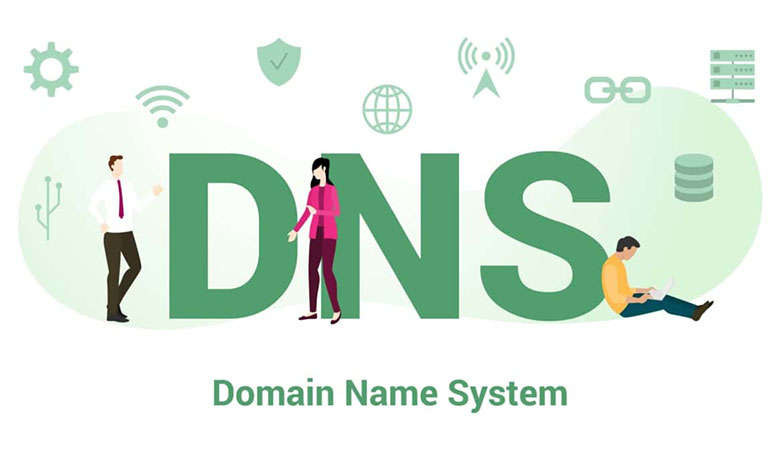What Is DNS and Why Your Website Can Break Without It
- Home
- Web Hosting Explained
- What Is DNS and Why Your Website Can Break Without It
What Is DNS and Why Your Website Can Break Without It
Table of Contents

Imagine trying to call a friend, but instead of dialing their name, you must remember their 12-digit phone number. That’s how the internet would work without DNS. The Domain Name System (DNS) is what allows us to use easy-to-remember domain names—like example.com—instead of complex IP addresses. It’s a behind-the-scenes technology, but without it, your website simply wouldn’t load.
Let’s take a closer look at what DNS is, how it works, and why problems with it can take your entire site offline—even when everything else is perfectly configured.
What Is DNS?
DNS is often described as the phonebook of the internet. Its job is simple: when someone types your domain name into their browser, DNS translates that name into the corresponding IP address of your server, so the browser knows where to connect.
For example, when a user visits yourwebsite.com, DNS quickly resolves that name to something like 192.0.2.123, which is your web server’s address. Only then can the connection be made and your site displayed.
This resolution process typically involves several steps and servers:
- Root servers point to the correct Top-Level Domain (TLD) servers (like .com, .net, etc.).
- TLD servers refer to your domain’s authoritative name servers.
- Name servers store and respond with actual DNS records, like A, CNAME, MX, etc.
All of this happens in milliseconds. But if any step fails, the user sees a browser error instead of your homepage.
Why DNS Is Critical to Website Functionality
You could have the world’s fastest server, an amazing site design, and optimized code—but if DNS is misconfigured or unavailable, none of it matters. Here’s why:
- No DNS = No Visitors
If your DNS records are missing, incorrect, or unreachable, browsers can’t find your server. Your site will appear completely offline to users.
- Email Services Depend on DNS
Email routing uses DNS MX records. Without them, your domain won’t receive or send email. A simple misconfigured record could mean lost communication with clients, leads, or support requests.
- SSL Certificates Require DNS Validation
When issuing or renewing SSL certificates (especially via Let’s Encrypt), the system may need to verify DNS records to confirm domain ownership. If DNS isn’t working, your certificate could fail to renew—leading to HTTPS errors.
- Third-Party Services Use DNS
CDNs (like Cloudflare), analytics tools, load balancers, and even some firewalls depend on DNS routing. Downtime here can disrupt all connected services, not just your website.
Common DNS Issues That Break Websites
Even a minor DNS misstep can trigger major problems. Here are a few common culprits:
- Expired Domain Name: If you forget to renew your domain, your DNS records go with it.
- Wrong DNS Records: A typo in an IP address or CNAME can cause incorrect routing.
- Propagation Delays: Changes to DNS can take up to 48 hours to fully propagate worldwide.
- DNS Hosting Downtime: If your DNS provider goes offline or is under attack, your site becomes unreachable.
- Conflicts with Cloud Services: Improper integration with services like Cloudflare can cause infinite redirects or access issues.
How to Protect Your Website from DNS Issues
While DNS is technical, keeping it stable doesn’t have to be complicated. Here are a few best practices:
- Use a reliable DNS provider with global infrastructure and DDoS protection.
- Monitor DNS changes and avoid unnecessary edits to critical records.
- Keep backups of your DNS zone configuration.
- Enable alerts to detect when your site becomes unreachable.
- Renew domains early to avoid accidental expiration.
DNS Basics: The Hidden Key to Keeping Your Website Online
DNS may be invisible to most users, but it’s absolutely vital to keeping your website online and functioning. Whether you’re running a small blog or managing a full-scale e-commerce store, a proper DNS configuration ensures your domain always takes visitors exactly where it should—your site.
Neglecting DNS is like building a store in the perfect location and forgetting to put up a sign. No one will know how to find you.
And just like with SSL certificates or website backups, it’s easy to make a small mistake that can cause costly downtime. So when you register a domain or launch a new site, don’t treat DNS as an afterthought—it’s one of the cornerstones of a reliable hosting setup.
Reliable Hosting for a Seamless Online Experience
24/7 Support & High Performance – Host with Confidence
Boost Your Online Presence with Host Home: Unmatched Hosting Power, Anytime, Anywhere.